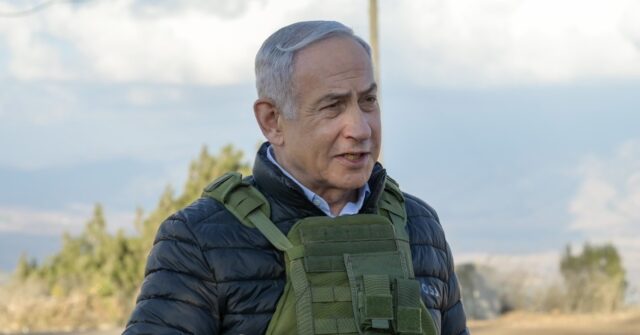Israeli Prime Minister Benjamin Netanyahu recently visited troops stationed on the Lebanese border and emphasized the need to drive Hezbollah north of the Litani River to restore peace and security, regardless of negotiations. His visit comes amid growing calls within his government for a ceasefire, following what they claim are successes in undermining Hezbollah’s military capabilities and command centers. Netanyahu reiterated that the critical measures for ensuring the safety of northern Israeli residents are to ensure Hezbollah relocates, prevent its rearmament, and respond decisively to any attacks. His comments reflect the broader context of heightened tensions in the region, including the backdrop of Iran’s support for both Hezbollah and Hamas.
During his address to the reserve soldiers and officers, Netanyahu highlighted the significant changes in military operations along the border, citing active aerial strikes and ground attacks that have targeted Hezbollah’s underground networks. He framed the Israeli military’s efforts as vital not only for Israel’s security but as a moral obligation to protect citizens from possible attacks, recalling the devastating assault carried out by Hamas that occurred on October 7. Netanyahu underscored the importance of maintaining military pressure on Hezbollah, promising a strong commitment to enforcement measures to disrupt its links with Iran.
Netanyahu’s recognition of reservists has been a prominent theme in his recent communications. He expressed gratitude for their sacrifices, as many have had to pause their professional lives and face personal losses due to their military service. The Prime Minister conveyed a sense of duty and pride among the soldiers, remarking on their unwavering spirit and historic role in defending the nation. As part of his visit, he also announced plans to support the reservists and their families, introducing a government initiative to provide them with necessary aid, citing their contributions as instrumental for the future of Israel.
The escalation in hostilities was prompted by Hezbollah’s initial attack on Israel in October, which was viewed as a show of solidarity with Hamas during its offensive. This developed into a situation where over 60,000 individuals were evacuated from northern Israel, as authorities sought to ensure the safety of both Jewish and Arab residents amidst ongoing military activities. Netanyahu indicated that restoring normalcy for these residents became a priority for the Israeli military objectives, alongside broader goals against Hamas in Gaza, which include neutralizing its military capabilities and facilitating the return of hostages.
By mid-September, Israel’s government signaled that returning residents safely to the north was a key part of its military strategy. As military operations progressed, Israel claimed to have significantly weakened Hezbollah’s leadership and infrastructure within the border regions. This has reportedly been part of a larger military doctrine that seeks to establish more secure borders for Israel while mitigating threats from hostile entities like Hezbollah and Hamas. In this context, political dynamics in the U.S. have been pivoting, with former President Donald Trump advocating for a ceasefire before the upcoming elections, potentially complicating Israel’s military objectives and strategies in dealing with Hezbollah.
The prospects for a ceasefire have been contentious, with figures like Vice President Kamala Harris expressing support for such an initiative earlier in the conflict; however, critics argue that a ceasefire at this stage could undermine Israel’s achievements and necessitate major concessions. These discussions reveal a tactical divergence regarding the handling of Israel’s military engagement with Hezbollah and highlight the challenges of aligning international diplomatic interests with national security agendas. As Israel’s government navigates this complex landscape of military conflict and political pressure, Netanyahu’s remarks resonate with the narrative of maintaining security for its citizens through decisive military action.

